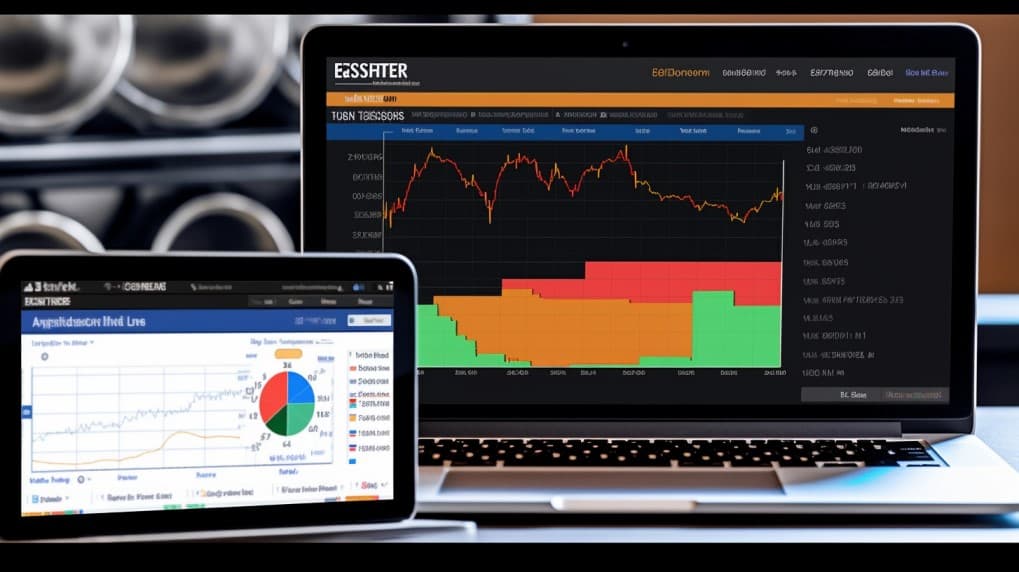
What are the best The Hartford ETFs?
The Hartford offers a range of Exchange-Traded Funds (ETFs) that provide investors with exposure to various asset classes and investment strategies. Among the options available, one notable ETF is The Hartford Multifactor Developed Markets (ex-US) ETF (RODM).
RODM: A Global Approach to Developed Markets
The Hartford Multifactor Developed Markets (ex-US) ETF (RODM) aims to provide investors with exposure to developed markets outside of the United States. RODM seeks to track the performance of the Hartford Risk-Optimized Multifactor Developed Markets (ex-US) Index, which employs a rules-based approach to select and weight stocks from developed international markets.
RODM stands out for its multifactor approach, which incorporates various fundamental and risk factors into stock selection. The ETF focuses on companies with attractive valuations, strong momentum, and positive sentiment, among other factors. By combining these factors, RODM aims to provide enhanced risk-adjusted returns compared to traditional market-cap-weighted indexes.
Compared to other similar ETFs in the market, RODM differentiates itself through its multifactor approach. This strategy aims to capture potential outperformance by selecting stocks based on multiple factors, rather than relying solely on market capitalization. Investors seeking exposure to developed markets outside of the US can consider RODM as a potential option.
The Benefits of Investing in ETFs
ETFs have gained popularity among investors due to their unique characteristics and advantages. Here are some key benefits of investing in ETFs:
Diversification: ETFs offer exposure to a basket of securities, providing investors with instant diversification across various companies, sectors, or asset classes. This diversification helps reduce risk by spreading investments across multiple holdings.
Liquidity: ETFs trade on stock exchanges throughout the trading day, allowing investors to buy or sell shares at market prices. This liquidity provides flexibility and the ability to adjust investment positions quickly.
Transparency: ETFs disclose their holdings on a daily basis, enabling investors to know exactly what assets the fund holds. This transparency allows for better portfolio management and helps investors make informed investment decisions.
Cost-Efficiency: ETFs often have lower expense ratios compared to mutual funds. Additionally, ETFs are typically passively managed and aim to replicate the performance of an underlying index, resulting in lower management fees.
 RODM,The Hartford ETF overlap What are the best The Hartford ETFs?
RODM,The Hartford ETF overlap What are the best The Hartford ETFs?
Factors to Consider When Choosing an ETF
When evaluating ETFs, it's essential to consider several factors before making an investment decision:
Investment Objective: Understand the investment objective of the ETF and ensure it aligns with your investment goals and risk tolerance. Different ETFs focus on various asset classes, sectors, or investment strategies.
Performance: Evaluate the historical performance of the ETF, including its risk-adjusted returns, to assess its track record. However, past performance is not indicative of future results.
Expense Ratio: Compare the expense ratios of different ETFs. Lower expense ratios can potentially lead to higher net returns over the long term.
Index Methodology: Examine the underlying index methodology of the ETF. Understand how the index is constructed and the criteria used for stock selection and weighting.
The Importance of Due Diligence in ETF Investing
Before investing in any ETF, it's crucial to conduct thorough due diligence. Consider factors such as the fund's management team, the ETF issuer's reputation, and the ETF's trading volume and liquidity. Additionally, review the prospectus and other available materials to gain a comprehensive understanding of the ETF's investment strategy and risks involved.
Conclusion:
When looking for the best The Hartford ETFs, investors should consider the multifactor approach offered by The Hartford Multifactor Developed Markets (ex-US) ETF (RODM). This ETF aims to provide exposure to developed markets outside of the United States while incorporating various factors into stock selection. However, it is essential to conduct proper due diligence and consider factors such as investment objective, performance, expense ratio, and index methodology before making any investment decisions.
Disclaimer: This article is for informational purposes only and does not constitute investment advice. The choice of ETFs should be based on individual investment goals and risk tolerance. Please consult with a professional financial advisor before making any investment decisions.
Sources:
The Hartford - Official Website: https://www.thehartford.com/
Investopedia - "Exchange-Traded Fund (ETF)" article: https://www.investopedia.com/terms/e/etf.asp
FAQ
What is The Hartford?
The Hartford is a financial services company that offers a range of insurance and investment products, including exchange-traded funds (ETFs).
What are ETFs?
ETFs, or exchange-traded funds, are investment funds that trade on stock exchanges, similar to individual stocks. They typically aim to track the performance of a specific index or asset class.
Does The Hartford offer ETFs?
Yes, The Hartford offers a variety of ETFs that provide exposure to different asset classes, sectors, or investment strategies.
What are some of the best ETFs offered by The Hartford?
While it's subjective and depends on individual investment goals and preferences, some of the popular ETFs offered by The Hartford include The Hartford Multifactor Developed Markets (ex-US) ETF, The Hartford Multifactor Global Small Cap ETF, and The Hartford Multifactor US Equity ETF.
How do I determine the best ETFs from The Hartford?
The best ETFs from The Hartford can vary based on factors such as investment objectives, risk tolerance, and market conditions. It's important to consider factors like expense ratios, historical performance, underlying holdings, and alignment with your investment strategy when evaluating ETF options.